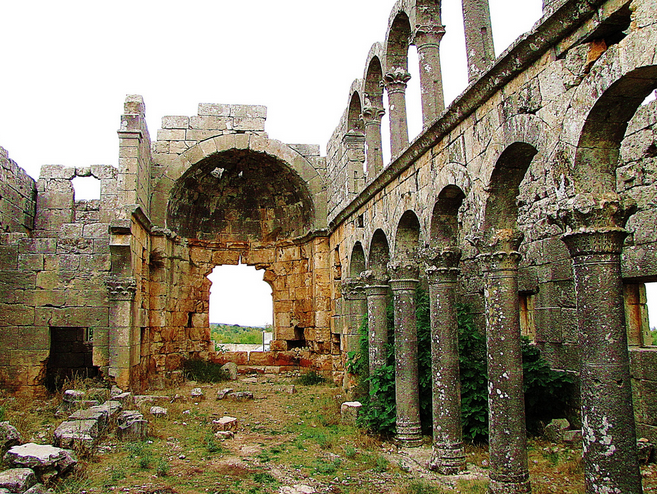Options Among the Ruins of the UMC
/The shockwaves from General Conference 2019 continue to reverberate across the church landscape. If you pay attention to social media, you have noticed that a number of churches and conferences across the country have issued statements of resistance to the Traditionalist Plan (see Jeremy Smith’s blog Hacking Christianity for a complete list of resisting churches, conferences, and regional bodies).
But the question that remains hanging in the air has to do with the future: What next for the United Methodists who can’t live in a Traditionalist denomination?
One significant possibility emerged in a Washington Post article that appeared March 29, centering on the activities of megachurch UM pastor Adam Hamilton, as well as North Texas’ own bishop. See the following relevant paragraphs:
The Rev. Adam Hamilton, who is the pastor of the largest Methodist church in the country, with 20,000 members in his Kansas City congregation, is organizing with Haupert-Johnson, Texas’s Bishop Michael McKee and a few others.
Their group has a methodical, political-organizing-style plan for drawing others into their fight: meetings this week and next week in Dallas and Atlanta, each with 30 handpicked clergy and leaders, including seven LGBT leaders. Then a meeting at Hamilton’s church in May for 500 leaders. Then another meeting in the fall, where they aim to draw 3,000 leaders of Methodist churches.
“I’ve been astounded at the number of emails, phone calls, text messages I’m receiving from churches across the country saying we can’t live like this,” Hamilton said. “These churches, they’re centrist. But they’re saying this doesn’t feel like the United Methodism that we have always known and loved. To be in a church that will be in the future led by the most conservative caucus in our denomination feels untenable for them.”
…
Hamilton said that before his group’s first meetings in Atlanta and Dallas, he envisions two possibly viable paths: splitting and resistance.
If the group opts for resistance, it would probably be financial, he said. Numerous large American churches like his would stop contributing their customary funds to the denomination, in the hope that delegates from Africa and Russia — who led the successful push at last month’s meeting to block same-sex marriage and gay clergy — would agree to a new vote at the 2020 meeting on LGBT issues, to preserve funding for their mission projects.
His second option would involve persuading all parts of the American church — both progressives and centrists who want same-sex marriage, as well as conservatives who want to separate and be done with the debate — to pool their voting power in favor of a split into separate denominations. American churches that favor same-sex marriage would opt into one denomination; most African and Russian churches as well as American churches that oppose same-sex marriage would be in the other one.
A vision for a new denomination will be a major topic at the under-the-radar meetings this week and next: both practical questions, like how a split church could share existing institutions such as schools and hospitals, and religious ones.
I don’t know anything more than what appears in this article. But I am heartened to see Bishop McKee’s name at the center of these happenings.
I disagree with Adam Hamilton’s suggestion that one option at the General Conference 2020 is sustained financial resistance. That’s a viable action in the meantime as a stopgap measure, but it’s cynical to think that the African and Russian delegates would change their votes “to preserve funding for their mission projects.” That’s just another form of bribery, of buying votes, which progressives have condemned conservatives for doing for years now.
Personally, I believe that the energy needs to be focused on the second option — separation. Since the conservative voting bloc will not decrease anytime soon, it’s best to concentrate on the opportunities that a church split would provide.
But there’s another problem looming in the discussions of what’s next. For one, Adam Hamilton himself has received the brunt of a great deal of criticism among progressives, because of what he himself represents. He’s white, male, middle-aged, heterosexual, and centrist. In other words, he’s pretty much UM status quo.
Lots of newly-energized progressives are raising the question, “Why should we listen to UM status quo? Where are the people of color, women, LGBTQ people, and why aren’t we following them instead of the same-old, same-old?”
To make things worse, the article suggests that Hamilton gathered together a small group of “handpicked” clergy and leaders. Lots of people want to know who they are; who hand-picked them? and on what basis? It sounds as if, once again, important decisions in the UMC are being made in a back room with cigar smoke lingering overhead.
In other words, there is an argument to be made that, as we struggle for the next Methodism, shouldn’t we try to do things differently? Shouldn’t we aim to build a more perfect institution, one that is not only LGBTQ-inclusive and affirming, but also racially-equitable, gender-equitable, more democratic, and less colonial?
Perhaps in the end, there will be three separate and distinct denominations that emerge from the ruins of the United Methodist Church: a conservative church that embraces the Traditionalist Plan, a centrist church that lives in a One Church Plan, and a progressive church that more energetically and actively pursues progressive values.
I would prefer the progressive denomination; but what about you?



